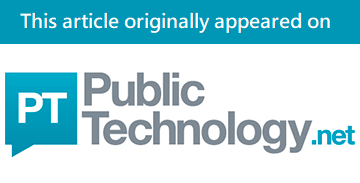A major annual government study has found that “despite universal awareness of artificial intelligence, public perceptions are dominated by concerns”.
This was one of six key conclusions from the 2024 edition of a tracker survey run each year by government’s Responsible Technology Adoption Unit, which sits within the Department for Science, Innovation and Technology.
 This year’s publication, which is based on feedback concerning the attitudes towards AI and data of over 5,000 respondents across all four nations of the UK, adds that “a majority of adults are now able to explain the term, at least to some extent… [but] the public’s associations with AI remain dominated by negative concepts, reflecting fears and concerns”.
This year’s publication, which is based on feedback concerning the attitudes towards AI and data of over 5,000 respondents across all four nations of the UK, adds that “a majority of adults are now able to explain the term, at least to some extent… [but] the public’s associations with AI remain dominated by negative concepts, reflecting fears and concerns”.
Similar worries also persist concerning the practices of organisations that hold and process personal data – despite increasingly positive attitudes to the potential value of data use.
“Anxieties are primarily rooted in data security, unauthorised sales of data, surveillance, and a lack of control over data sharing,” the survey says. “These concerns are particularly prevalent among older individuals. Notably, these issues mirror the themes participants recalled hearing about in news stories.”
Attitudes towards the sharing of personal data were highly influenced by the organisations concerned – with NHS and academic entities being comparatively highly trusted to do so, “whereas social media companies and the government generally receive lower levels of trust”.
Anxieties and negative preconceptions about data and AI “are more pronounced among digitally disengaged individuals compared with the broader online population”, according to the research.
“Furthermore, this wave of the survey sees declining trust in organisations to keep their data safe, especially social media and big technology,” the report adds. “Regarding AI, those with low digital familiarity recognise the positive impact of AI on society but are less likely to expect to benefit from it personally, with many anticipating negative effects.”
The range of opinions is illustrated by the study’s finding that about four in 10 people expect AI to have a broadly positive impact societally and personally – while three in ten believe the technology will have a negative impact.
“Notably, over half the public think that AI is already used, at least sometimes, to deliver public services,” the survey adds. “However, there are concerns about its negative role in the spread of misinformation and job displacement.”
Usage of chatbots has become widespread, the study finds, with three fifths of respondents having used them in the previous three months. About a quarter of people in the UK now regularly use AI tools “for visual content creation” .
In her introduction to the report, minister for AI and digital government Feryal Clark says that “public opinion on data and AI is complex and context-dependent”.
“These insights will continue to shape the government’s approach to data and AI, centring public voices as we navigate the immense opportunities these technologies offer,” she adds. “We hope this latest survey, like its predecessors, will serve as a cornerstone for building trust and empowering society to harness the transformative potential of data and AI.”